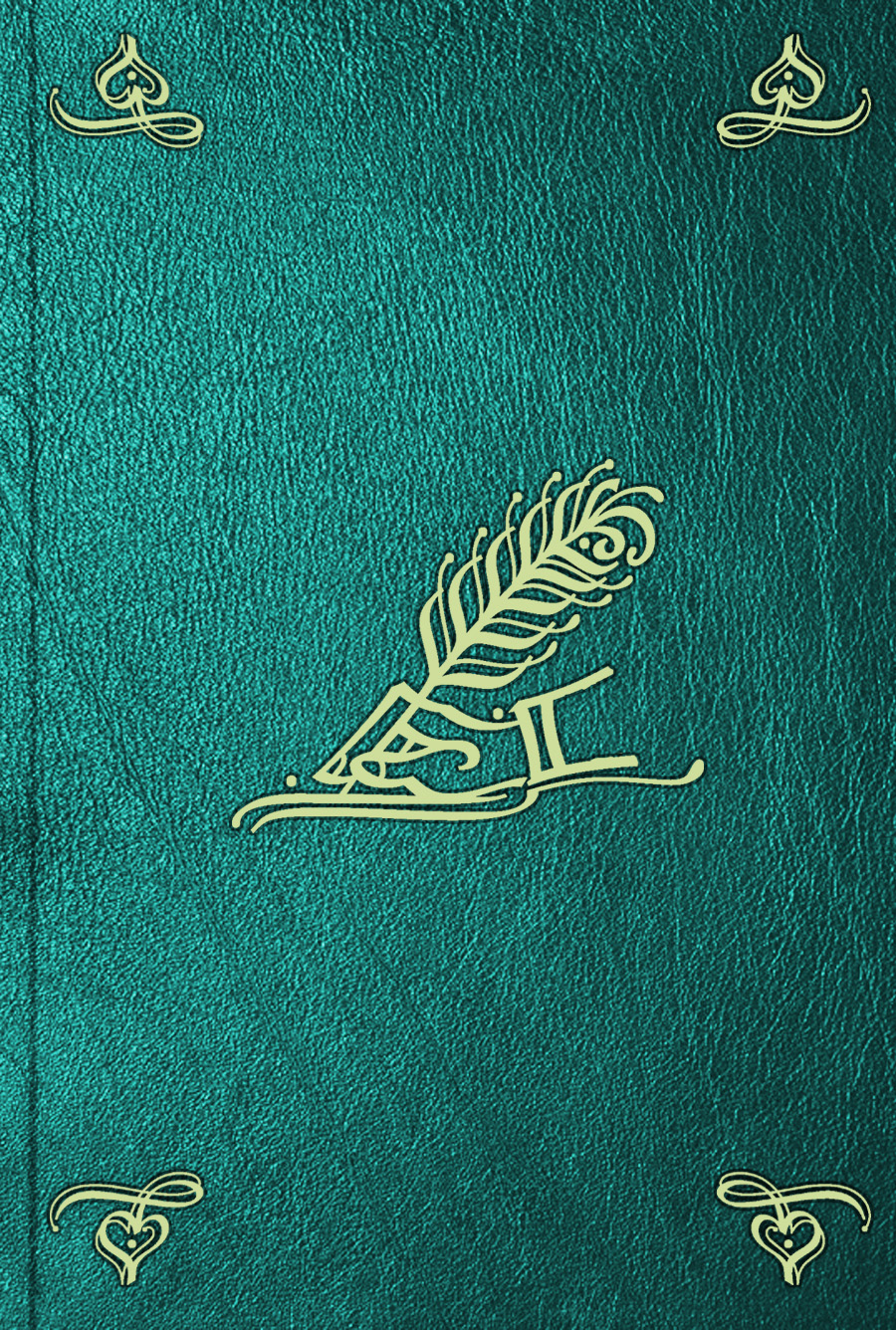Электронная книга: William Robertson «An historical disquisition concerning the knowledge which the ancients had of India»

|
Полный вариант заголовка: «An historical disquisition concerning the knowledge which the ancients had of India : and the progress of trade with that country prior to the discovery of the passage to it by the Cape of Good Hope : with an appendix, containing observations on thecivil policy – the laws and the judicial proceedings – the arts – the sciences – and religious institutions, of the Indians / by William Robertson, D.D.F.R.S. Ed.». Издательство: "Библиотечный фонд" (1791)
электронная книга Скачать бесплатно на Litres |
Другие книги автора:
| Книга | Описание | Год | Цена | Тип книги |
|---|---|---|---|---|
| The works. Vol. 6 | Полный вариант заголовка: «The works of Wm. Robertson : Vol. 6. History of America / vol. 1 : in 8 volumes» — Библиотечный фонд, электронная книга Подробнее... | электронная книга | ||
| The works. Vol. 7 | Полный вариант заголовка: «The works of Wm. Robertson : Vol. 7. History of America / vol. 2 : in 8 volumes» — Библиотечный фонд, электронная книга Подробнее... | электронная книга | ||
| The works. Vol. 5 | Полный вариант заголовка: «The works of Wm. Robertson : Vol. 5. Charles the Fifth / vol. 3 : in 8 volumes» — Библиотечный фонд, электронная книга Подробнее... | электронная книга | ||
| The works. Vol. 4 | Полный вариант заголовка: «The works of Wm. Robertson : Vol. 4. Charles the Fifth / vol. 2 : in 8 volumes» — Библиотечный фонд, электронная книга Подробнее... | электронная книга | ||
| The works. Vol. 2 | Полный вариант заголовка: «The works of Wm. Robertson : Vol. 2. The history of Scotland / vol. 2 : in 8 volumes» — Библиотечный фонд, электронная книга Подробнее... | электронная книга | ||
| The works. Vol. 3 | Полный вариант заголовка: «The works of Wm. Robertson : Vol. 5. Charles the Fifth / vol. 3 : in 8 volumes» — Библиотечный фонд, электронная книга Подробнее... | электронная книга | ||
| The works. Vol. 1 | Полный вариант заголовка: «The works of Wm. Robertson : Vol. 1. The history of Scotland : in 8 volumes» — Библиотечный фонд, электронная книга Подробнее... | электронная книга |
William Robertson
Infobox Military Person
name=Sir William Robertson, Bt
lived=
placeofbirth=
placeofdeath=
caption=Field Marshal Sir William Robertson
nickname=
allegiance=flagicon|United Kingdom
branch=
serviceyears=1877 - 1918
rank=Field Marshal
commands=
unit=
battles=
awards=
Knight Grand Cross of the Royal Victorian Order
laterwork=
Field Marshal Sir William Robert Robertson, 1st Baronet, GCB, GCMG, GCVO, DSO ( Early life "Wully" Robertson was born at He rose to He consequently served in India and completed a tour of duty with the Boer War and Staff College With the start of the World War I Following the outbreak of In 1919, Robertson was thanked by Parliament, granted £10,000 and created a Robertson died in February, 1933, aged 73. He was succeeded in the baronetcy by his son Brian Hubert. The latter rose to become a general in the Army and was raised to the peerage as Baron Robertson of Oakridge in 1961. References Further reading * "The Military Correspondence of Field-Marshal Sir William Robertson, Chief Imperial General Staff December 1915–February 1918" Woodward, David R (ed.) Bodley Head for ARS, 1989 External links * [http://www.npg.org.uk/live/search/person.asp?search=ss&sText=William+Robertson&LinkID=mp03819 Sir William Robert Robertson, 1st Bt (1860-1933), Field Marshal] (National Portrait Gallery) Источник: William Robertson
* "The British Field Marshals 1736-1997", Tony Heathcote, Pen & Sword Books Ltd, 1999, ISBN 0-85052-696-5
* Robertson, Sir William Robert, "From Private to Field Marshall," London: Constable, 1921
* [http://oll.libertyfund.org/Home3/Author.php?recordID=0505 William Robertson] at [http://oll.libertyfund.org/Home3/index.php "The Online Library of Liberty"]
* [http://www.kcl.ac.uk/lhcma/locreg/ROBERTSON5.shtml Outline of career]
См. также в других словарях:
Enlightenment (The Scottish) — The Scottish Enlightenment M.A.Stewart INTRODUCTION The term ‘Scottish Enlightenment’ is used to characterize a hundred years of intellectual and cultural endeavour that started around the second decade of the eighteenth century. Our knowledge of … History of philosophy
William Robertson (historian) — William Robertson (September 19, 1721 – June 11, 1793) was a Scottish historian and Principal of the University of Edinburgh. ( The thirty years during which (he) presided over the University perhaps represent the highest point in its history… … Wikipedia
William Robertson (historiador) — William Robertson (historiador). William Robertson (Borthwick, 19 de septiembre de 1721 – Edimburgo, 11 de junio de 1793) fue uno de los más destacados historiadores escoceses. Vida Nacido en Borthwick, Midlothian y educado en Dalkeith y en la … Wikipedia Español
William Robertson — (1721 1793) Wil … Deutsch Wikipedia
BIBLE — THE CANON, TEXT, AND EDITIONS canon general titles the canon the significance of the canon the process of canonization contents and titles of the books the tripartite canon … Encyclopedia of Judaism
literature — /lit euhr euh cheuhr, choor , li treuh /, n. 1. writings in which expression and form, in connection with ideas of permanent and universal interest, are characteristic or essential features, as poetry, novels, history, biography, and essays. 2.… … Universalium
